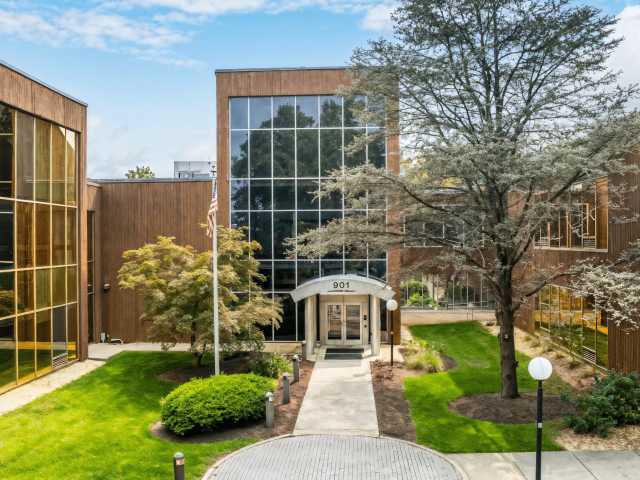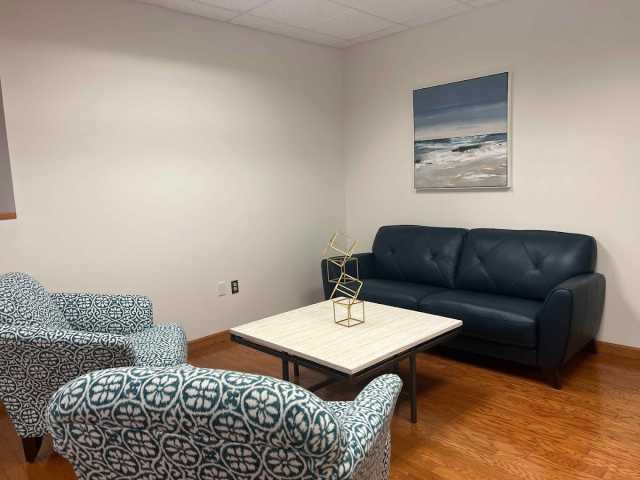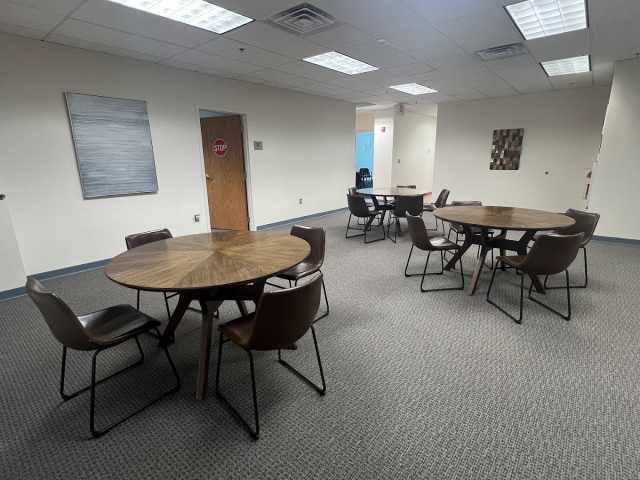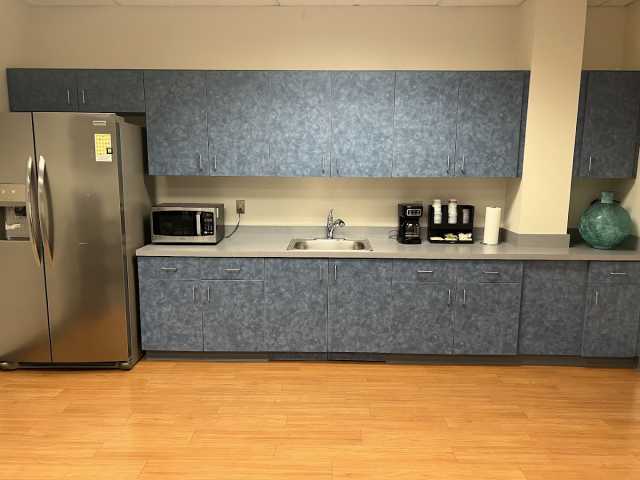King of Prussia, Pennsylvania, United States
Blueview Recovery
Verified
Verified
This provider’s information has been quality-checked by Recovery.com’s Research Team for accuracy and completeness, including center verification through appropriate third-party organizations.
Provider's Policy
Blueview Recovery is in network with BlueCross BlueShield, and accepts most major insurance plans.
About Blueview Recovery
Clients can step into the life they’re meant to live at Blueview Recovery. They treat substance use and co-occurring mental health conditions with compassion and a commitment to long-term success. Whether clients enter the partial hospitalization program (PHP) for full-day support, step into the structure of the intensive outpatient program (IOP), or continue growth in outpatient care, every level of care is designed to help clients move forward.
Rise beyond Addiction and into Possibility
Blueview believes that recovery is about more than just quitting substances—it’s about reclaiming one’s power and stepping into one’s full potential. Their approach is rooted in the idea that healing happens when clients are heard, seen, and supported. Through a blend of data-backed and holistic therapies, clients break free from old patterns and rediscover their self worth.
Return Each Day to a Place That Feels Supportive
Located in King of Prussia, this outpatient center is designed for comfort and connection, with warm inviting therapy rooms, quiet spaces to reset, and easy access to everything clients need nearby. With travel assistance available, Blueview is a place to come back to day after day.
Carry Progress into Everyday Life
At Blueview, clients don’t just leave with hope—they leave with a plan. Through personalized aftercare support, ongoing therapy, alumni engagement, and connection to community resources, they help each client progress while navigating real-world challenges. Whether finding a trusted support group or knowing someone is always in their corner, clients feel supported every step of the way.
Read More
Insurance Accepted
Provider's Policy:Blueview Recovery is in network with BlueCross BlueShield, and accepts most major insurance plans.
Repair what Addiction Tried to Break
Addiction can shake the very core of a family—but recovery can rebuild it, stronger than before. Blueview Recovery goes beyond treating the individual with their family-focused approach that brings loved ones into the process through therapy, education, and honest conversations. With supportive, professional guidance, families learn to communicate more openly and understand one another’s experiences.
Build Stability through Structured Living
While Blueview doesn’t directly offer on-site housing, they partner with trusted sober living homes in King of Prussia, Philadelphia, and surrounding areas to make sure clients have a safe, structured, place to land. These residences provide accountability and peer support so clients stay focused on recovery while rebuilding their daily lives. With access to transportation, routine, and community, sober living is a powerful bridge between treatment and independent living.
Continue Healing with Added Freedom in IOP
Transitioning from intensive treatment doesn’t have to feel overwhelming. At Blueview Recovery, their intensive outpatient program (IOP) offers the perfect next step—providing continued structure, support, and science-backed care, while also giving flexibility to reconnect with school, work, and family. The IOP helps reinforce the progress made in PHP while allowing for greater independence. Blueview Recovery also offers virtual IOP during the evenings.
Engage in Daily, Purposeful Healing in PHP
A day in the partial hospitalization program (PHP) at Blueview is designed to create real momentum for clients’ recovery journey. Each day includes 6 hours of focused therapeutic care, blending one-on-one, group, and family therapies. Clients take part in skill-building workshops on topics like relapse prevention, stress management, and emotional regulation. They also gain camaraderie from peer support and medication management when needed.

Center Overview
Men and Women
Men and women attend treatment for addiction in a co-ed setting, going to therapy groups together to share experiences, struggles, and successes.
Treatment Focus
This center treats primary substance use disorders and co-occurring mental health conditions. Your treatment plan addresses each condition at once with personalized, compassionate care for comprehensive healing.

Care Options








Treatment
Specializations
Alcohol
Using alcohol as a coping mechanism, or drinking excessively throughout the week, signals an alcohol use disorder.
Co-Occurring Disorders
A person with multiple mental health diagnoses, such as addiction and depression, has co-occurring disorders also called dual diagnosis.
Cocaine
Cocaine is a stimulant with euphoric effects. Agitation, muscle ticks, psychosis, and heart issues are common symptoms of cocaine abuse.
Drug Addiction
Drug addiction is the excessive and repetitive use of substances, despite harmful consequences to a person's life, health, and relationships.
Heroin
Heroin is a highly addictive and illegal opioid. It can cause insomnia, collapsed veins, heart issues, and additional mental health issues.
Methamphetamine
Methamphetamine, or meth, increases energy, agitation, and paranoia. Long-term use can result in severe physical and mental health issues.
Opioids
Opioids produce pain-relief and euphoria, which can lead to addiction. This class of drugs includes prescribed medication and the illegal drug heroin.
Outpatient
During outpatient rehab, patients attend a structured treatment program while continuing to live at home.
Approaches
Evidence-Based
A combination of scientifically rooted therapies and treatments make up evidence-based care, defined by their measured and proven results.
Holistic
A non-medicinal, wellness-focused approach that aims to align the mind, body, and spirit for deep and lasting healing.
Individual Treatment
Individual care meets the needs of each patient, using personalized treatment to provide them the most relevant care and greatest chance of success.
Therapies
1-on-1 Counseling
Patient and therapist meet 1-on-1 to work through difficult emotions and behavioral challenges in a personal, private setting.
Family Therapy
Family therapy addresses group dynamics within a family system, with a focus on improving communication and interrupting unhealthy relationship patterns.
Life Skills
Teaching life skills like cooking, cleaning, clear communication, and even basic math provides a strong foundation for continued recovery.
Motivational Interviewing
Based on the idea that motivation to change comes from within, providers use a conversational framework to discover personalized methods for change.
Psychoeducation
This method combines treatment with education, teaching patients about different paths toward recovery. This empowers them to make more effective decisions.
Recreation Therapy
In recreation therapy, recovery can be joyful. Patients practice social skills and work through emotional triggers by engaging in fun activities.
Relapse Prevention Counseling
Relapse prevention counselors teach patients to recognize the signs of relapse and reduce their risk.
Conditions We Treat
ADHD, ADD
ADHD is a common mental health condition caused by dopamine imbalance. Common symptoms include inattention, hyperactivitiy, and impulsivity.
Anger
Although anger itself isn't a disorder, it can get out of hand. If this feeling interferes with your relationships and daily functioning, treatment can help.
Anxiety
Anxiety is a common mental health condition that can include excessive worry, panic attacks, physical tension, and increased blood pressure.
Bipolar
This mental health condition is characterized by extreme mood swings between depression, mania, and remission.
Depression
Symptoms of depression may include fatigue, a sense of numbness, and loss of interest in activities. This condition can range from mild to severe.
Obsessive Compulsive Disorder (OCD)
OCD is characterized by intrusive and distressing thoughts that drive repetitive behaviors. This pattern disrupts daily life and relationships.
Stress
Stress is a natural reaction to challenges, and it can even help you adapt. However, chronic stress can cause physical and mental health issues.
Trauma
Some traumatic events are so disturbing that they cause long-term mental health problems. Those ongoing issues can also be referred to as "trauma."
Substances We Treat
Alcohol
Using alcohol as a coping mechanism, or drinking excessively throughout the week, signals an alcohol use disorder.
Benzodiazepines
Benzodiazepines are prescribed to treat anxiety and sleep issues. They are highly habit forming, and their abuse can cause mood changes and poor judgement.
Co-Occurring Disorders
A person with multiple mental health diagnoses, such as addiction and depression, has co-occurring disorders also called dual diagnosis.
Cocaine
Cocaine is a stimulant with euphoric effects. Agitation, muscle ticks, psychosis, and heart issues are common symptoms of cocaine abuse.
Drug Addiction
Drug addiction is the excessive and repetitive use of substances, despite harmful consequences to a person's life, health, and relationships.
Ecstasy
Ecstasy is a stimulant that causes intense euphoria and heightened awareness. Abuse of this drug can trigger depression, insomnia, and memory problems.
Heroin
Heroin is a highly addictive and illegal opioid. It can cause insomnia, collapsed veins, heart issues, and additional mental health issues.
Psychedelics
Hallucinogenic drugs—like LSD—cause euphoria and increased sensory experiences. When abused, they can lead to depression and psychosis.
Methamphetamine
Methamphetamine, or meth, increases energy, agitation, and paranoia. Long-term use can result in severe physical and mental health issues.
Opioids
Opioids produce pain-relief and euphoria, which can lead to addiction. This class of drugs includes prescribed medication and the illegal drug heroin.
We love hearing about your treatment experience
Help individuals and families seeking treatment by sharing your first-hand experience with this treatment provider. Review Guidelines.



























